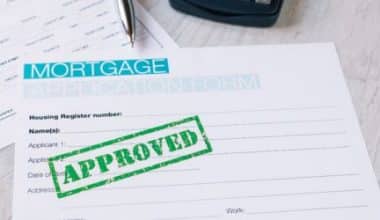Insurance claims adjusters are the link between an insurance company and policyholders who file for claims. Their career path entails examining and evaluating insurance claims to establish the scope of coverage and the amount of compensation owed to the policyholder. It comes with diverse responsibilities and work challenges, which can be stressful if you’re not passionate about your job. If you’re wondering how to become one or what their roles and relevant skill requirements are, including how much you can make as an insurance claims adjuster, this is for you.
Who is a Claims Adjuster?
A claims adjuster is a professional who assesses and investigates insurance claims to determine the extent of an insurance company’s liability. These people work for insurance companies, and their main duty is to assess the legitimacy of a claim and determine the proper sum of money to compensate the policyholder.
How Stressful is Being a Claims Adjuster?
The primary duties of an insurance adjuster can be stressful and challenging because they handle many cases at once and are frequently under pressure to draw speedy conclusions. Adjusters may also be needed to work long hours and be on call in case of an emergency. A claims adjuster’s level of stress might vary depending on various factors, including the nature of the claims they handle, the organization they work for, and their work style.
What is the Highest Paid Insurance Adjuster?
According to ZipRecruiter, an insurance adjuster can earn between $50,000 and $114,00 per year
How do you Survive Being a Claims Adjuster?
Surviving as a claims adjuster can be challenging, as the job often involves dealing with stressful situations, tight deadlines, and sometimes difficult interactions with clients. The following are some tips to help you navigate the challenges and thrive in this role:
#1. Develop Strong Communication Skills
Effective communication is crucial in this role because you need to relate to the company, the policyholder, and the person at fault. Therefore, you must learn to manage difficult conversations with empathy and professionalism.
#2. Stay Organized
Insurance claim adjusters often handle multiple cases simultaneously; therefore, there is a need to be highly organized while using tools such as calendars, to-do lists, and project management software.
#3. Understand Policies and Procedures
Having a deep understanding of insurance policies and company procedures is essential. Therefore, stay updated on changes in regulations and industry standards at all times.
#4. Continuous Learning
The insurance industry is dynamic; therefore, you must stay informed about new developments, technologies, and best practices. Attend workshops and training sessions to enhance your knowledge and skills. This will ensure you get first-hand information.
#5. Develop Empathy
Dealing with people who have experienced losses can be emotionally challenging. Therefore, developing empathy and trying to reach a favorable agreement will help you handle these situations with sensitivity.
#6. Time Management
As an insurance claims adjuster, you will have to prioritize tasks based on urgency and importance. This will help you meet deadlines and manage your workload effectively.
#7. Handle Stress Effectively
Claims-adjusting can be stressful. As a result, there’s a need to develop healthy coping mechanisms to help you manage the stress involved. Examples include regular exercise, mindfulness, hobbies, and so on.
#8. Build a Support Network
Connect with colleagues, mentors, or support groups within the industry. Sharing experiences and advice can be invaluable.
#9. Attention to Detail
Accuracy is crucial in claim adjustment. Hence, there is a need to pay close attention to details in documentation and information to avoid errors.
#10. Legal Knowledge
Depending on the type of claim you handle, legal knowledge can be beneficial. Understanding relevant laws and regulations can enhance your decision-making.
What Does an Insurance Adjuster Do?
The primary responsibility of an insurance claims adjuster is to conduct thorough investigations into insurance claims and ascertain the extent of an insurance company’s liability in certain circumstances. They also verify the authenticity of claims and determine a reasonable sum for settlement. Their job includes the following:
- Assembling all evidence that supports or refutes an allegation, such as statements, images, and records
- Notifying all parties who may be impacted by the claims determination
- Conducting interviews with all persons involved in the insurance claim
- Obtaining police and medical reports in connection with the claim
- Determining whether and to what degree an insurance policy covers certain claims
- Putting all of the facts together in a report for the insurance company
If you’re an insurance claims adjuster, chances are that you’ll work with any of the following sectors: vehicle, health, life, and property insurance.
How to Become an Insurance Claims Adjuster
If you want to pursue a career as an insurance claims adjuster, then the following are some of the steps to take:
#1. Meet the Educational Requirements
The first step to becoming a claim adjuster is to gain relevant basic knowledge through education. Most employers expect a minimum of a high school diploma or equivalent. Generally, insurance claims adjuster positions are open to individuals who only hold a high school diploma, but having an associate bachelor’s degree or more may set you apart from other candidates.
#2. Choose the Type of Adjuster You Wish to Be
If you want to be an engineer, you’ll have to decide which one you want to be. The same applies to a career as an insurance claims adjuster. This is because there are various types of insurance adjuster jobs, as we will see later. Therefore, you’ll have to focus on the exact one you’d like to pursue to figure out what actions you need to take to get there. This will also give you a better understanding of what to expect when applying for jobs and who you might network with to broaden your employment prospects.
#3. Meet Relevant Requirements and Obtain Your License
Most professional careers require a license for their operation in many states. If you want a career as an insurance claims adjuster, then you will have to get the relevant license to operate. To meet the eligibility requirements for the state licensing examination, individuals have the option of taking a pre-licensing course.
#4. Continuous Education and License Maintenance
The fact that you have gotten the basic education and obtained your license of operation doesn’t automatically take you to the pinnacle of your career. It would help if you pledged to continual education and knowledge acquisition to stay abreast in your industry. Once you’re not knowledgeable, you may be out of a job much sooner than you expect. Continuing education credits can be obtained through the completion of courses offered in both online and in-person formats. Also, make sure you maintain your license by updating it when necessary and getting additional qualifications for better opportunities.
Types of Insurance Adjusters
The following are the most common types of insurance adjusters:
#1. Independent adjuster
An “independent adjuster” is a worker for an insurance company who operates without the supervision of the company. In other words, he is a self-employed independent contractor who handles insurance claim adjustments for numerous insurance companies or third parties. Although working independently has its advantages, being an independent insurance claims adjuster is very demanding.
#2. Staff adjuster
The staff adjuster is widely recognized as the predominant category of insurance claims adjuster. Here, the claim adjuster is employed by an insurance firm and he is responsible for managing claims on behalf of the company’s clients. This is the opposite of the independent claim adjusters because most staff adjusters are employed on a full-time basis.
#3. Public adjuster
A public adjuster is an individual who is licensed and authorized to represent policyholders in the process of filing and negotiating insurance claims. Policyholders or clients contract them to provide professional services to them. Individuals may seek the assistance of these adjusters to evaluate insurance settlements that they perceive as unjust or unsatisfactory.
Skills Required for Insurance Adjusters
A proficient insurance claims adjuster’s role necessitates possessing numerous critical abilities. The following are some of the basic skills you need to be an effective insurance adjuster:
#1. Time Management Skills
Time is integral to insurance claim adjustment. This is because policyholders expect their payout and will be agitated if it goes beyond the expected period. In the role of an insurance adjuster, it is common to assume responsibility for managing many claims concurrently. Efficiently managing one’s time is of utmost importance to effectively handle several projects and fulfill job responsibilities.
#2. Communication skills
Effective communication skills are essential in all aspects of life, including personal relationships, professional settings, and academic pursuits. Insurance adjusters relate to insurance policyholders, insurance firms, and witnesses who are implicated in an insurance claim. The ability to engage in efficient communication is an essential element of the role of an insurance adjuster, as it guarantees that all involved parties receive sufficient and current information about a claim.
#3. Computer skills
Insurance claims adjusters heavily depend on computer systems and software applications to effectively carry out their professional responsibilities. The use of electronic methods for the dissemination of claims estimates and updates by insurance companies necessitates a proficient understanding of computer systems among insurance adjusters. Proficiency in various tasks, such as email usage, and document creation, and adeptness in navigating claims adjustment software might prove to be advantageous.
How do I Get my Adjuster License in Florida?
To become a licensed insurance claims adjuster in Florida, you need to follow specific steps outlined by the Florida Department of Financial Services (DFS). Below is a general guide on how to obtain your adjuster license in Florida:
#1. Meet Eligibility Requirements
The first step to getting your adjuster license in Florida is to be at least 18 years old and be a U.S. citizen or a legal person. Secondly, you must not have committed any acts that would be grounds for the denial, suspension, or revocation of a license.
#2. Complete Pre-License Education
Florida requires pre-license education for insurance adjusters. You must complete an approved 40-hour course. You can find a list of approved providers on the DFS website.
#3. Pass the State Exam
After completing the pre-license education, you must pass the Florida Insurance Adjuster Exam. Pearson VUE is in charge of administering the exam. You can schedule the exam through the Pearson VUE website or by calling them.
#4. Submit an Application
Once you pass the exam, you can submit your license application through the DFS website or the National Insurance Producer Registry (NIPR) website. You’ll need to provide information about your pre-license education and exam completion.
#5. Fingerprinting
You are required to be fingerprinted. You can schedule an appointment for fingerprinting through the Florida Department of Financial Services’ contracted vendor, MorphoTrust USA. This step is necessary for a background check.
#6. Background Check
The DFS will conduct a background check as part of the licensing process. Make sure your background is clear of any disqualifying issues.
#7. Pay Licensing Fees
Pay the applicable licensing fees. The fees can vary, and you can find the current fee schedule on the DFS website.
#8. Maintain Continuing Education
After obtaining your license, you’ll need to fulfill continuing education requirements to keep your license active. Florida requires adjusters to complete 24 hours of continuing education every two years.
#9. Check Application Status
You can check the status of your license application through the DFS website. Once your application is approved, you’ll receive your adjuster license.
#10. Obtain Errors and Omissions Insurance
While not a requirement for licensure, many insurance companies may require you to have Errors and Omissions (E&O) insurance. Check with potential employers or clients to see if this is necessary for your specific situation.
- INSURANCE ADJUSTER: Definition, Duties & How to Become One
- State Farm Insurance Claim Time Limit: Explained!
- What Is an Insurance Attorney & What Do They Do?
- HOW TO SCARE AN INSURANCE ADJUSTER: Complete Guide to Insurance Claims






